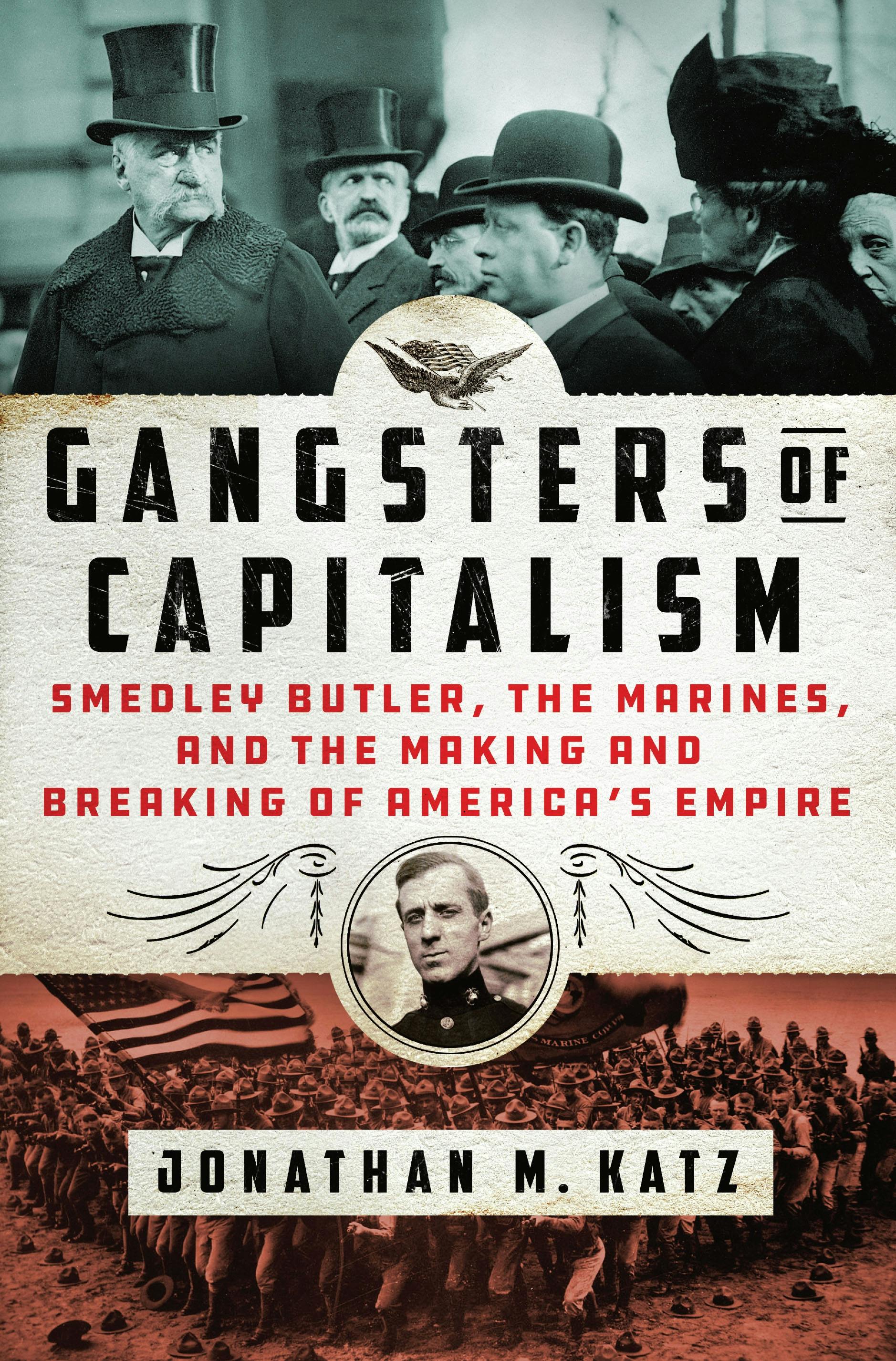In August 1934, MacGuire called Butler from Philadelphia and asked to meet. Butler suggested an abandoned café at the back of the lobby of the Bellevue-Stratford Hotel.
First MacGuire recounted all he had seen in Europe. He’d learned that Mussolini and Hitler were able to stay in power because they kept soldiers on their payrolls in various ways. “But that setup would not suit us at all,” the businessman opined.
But in France, MacGuire had “found just exactly the organization we’re going to have.” Called the Croix de Feu, or Fiery Cross, it was like a more militant version of the American Legion: an association of French World War veterans and paramilitaries. On Feb. 6, 1934 — six weeks before MacGuire arrived — the Croix de Feu had taken part in a riot of mainly far-right and fascist groups that had tried to storm the French legislature. The insurrection was stopped by police; at least 15 people, mostly rioters, were killed. But in the aftermath, France’s center-left prime minister had been forced to resign in favor of a conservative.
MacGuire had attended a meeting of the Croix de Feu in Paris. It was the sort of “super-organization” he believed Americans could get behind — especially with a beloved war hero like Butler at the helm.
Then he made his proposal: The Marine would lead half a million veterans in a march on Washington, blending the Croix de Feu’s assault on the French legislature with the March on Rome that had put Mussolini’s Fascisti in power in Italy a decade earlier. They would be financed and armed by some of the most powerful corporations in America — including DuPont, the nation’s biggest manufacturer of explosives and synthetic materials.
The purpose of the action was to stop Roosevelt’s New Deal, the president’s program to end the Great Depression, which one of the millionaire du Pont brothers deemed “nothing more or less than the Socialistic doctrine called by another name.” Butler’s veteran army, MacGuire explained, would pressure the president to appoint a new secretary of state, or “secretary of general affairs,” who would take on the executive powers of government. If Roosevelt went along, he would be allowed to remain as a figurehead, like the king of Italy. Otherwise, he would be forced to resign, placing the new super-secretary in the White House.
Butler recognized this immediately as a coup. He knew the people who were allegedly behind it. He had made a life in the overlapping seams of capital and empire, and he knew that the subversion of democracy by force had turned out to be a required part of the job he had chosen. “I spent most of my time being a high-class muscle man for big business, for Wall Street, and for the bankers,” Butler would write a year later. “In short, I was a racketeer for capitalism.”
And Butler knew another thing that most Americans didn’t: how much they would suffer if anyone did to their democracy what he had done to so many others across the globe.
